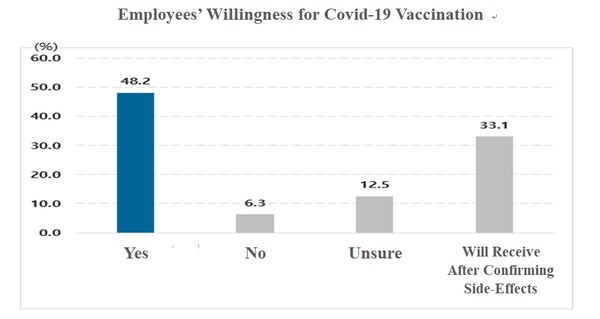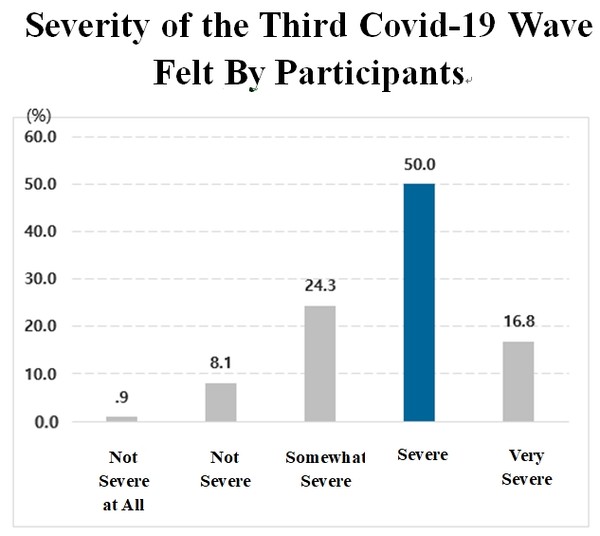Only 48.2 percent of office workers are determined to receive Covid-19 vaccines, by all means, a university research team said Friday based on a survey.

The team, led by Professor Jung Hye-sun of the Graduate School of Public Health of Catholic University of Korea School of Medicine, also found that 33.1 percent of the workers would decide whether to get shots after observing the side effects in those who took the vaccines.
The university researchers conducted the opinion poll on 1,103 office workers for a month from Feb. 8 to March 9. It has a 95-percent level with plus or minus 2.3 percent error.
In the survey, 12.5 percent of the respondents answered they were unsure about vaccination, and 6.3 percent refused to receive the jabs.
About 68 percent of those above 50 said they would get immunized, while 52.4 percent of people under 30 said they would wait and see whether the vaccinated people develop side effects. Researchers noted that one in 10 respondents in their 30s replied they would not take the Covid-19 shots.

The survey results come, as the government’s aim to form herd immunity by November appears increasingly unattainable, according to epidemiological experts who cite the uncertainty in vaccine arrivals and lingering vaccine hesitancy among some people.
The research team said 66.8 percent of workers think that the third wave, which started about five months ago, was more severe than the first and second ones. Besides, 66 percent believed the fourth wave would also come because of variant coronavirus strains despite the nation’s vaccination program,

The team stressed that it is necessary to supply more face masks and hand sanitizers and perform tighter disinfection to improve workplace infection control. It emphasized the government should support small businesses with 50 or fewer employees, as they have relatively weaker control over infection than workplaces hiring 300 or more workers.
“We need to pay more attention to infection control as businesses have to be shut down when infection occurs at workplaces, which significantly affects workers and employers,” Professor Jung said. “It is also important to provide accurate information about the vaccines and improve awareness to encourage people in their 20s and 30s to participate in vaccinations.”

